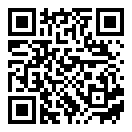The Semantics of "بور" (/bur/) in the Quran and the Sacred Jewish-Christian Texts
 / Assistant Professor of the Department of Quran and Hadith Sciences at Kharazmi University / mahmoodmakvand@yahoo.com
/ Assistant Professor of the Department of Quran and Hadith Sciences at Kharazmi University / mahmoodmakvand@yahoo.comچکیده و کلیدواژه فارسی (Persian)
- کتاب مقدس
- ابندريد، محمد بن حسن، 1987م، جمهرة اللغه، بيروت، دارالعلم للملايين.
- ابنفارس، ابوالحسين احمد، 1979م، معجم مقاييس اللغة، تحقيق عبدالسلام محمد هارون، بیروت، دارالفکر.
- ابنمنظور، محمد بن مكرم، 1414ق، لسان العرب، بيروت، دار صادر.
- ازهری، محمد بن احمد، 2001م، تهذيب اللغة، تحقیق محمد عوض مرعب، بیروت، دار إحياء التراث العربي.
- الهى قمشهاى، مهدى، 1380، ترجمه قرآن، قم، فاطمة الزهراء.
- انصارى، خوشابر مسعود، 1377، ترجمه قرآن، تهران، نشر و پژوهش فرزان روز.
- آيتى، عبدالمحمد، 1374، ترجمه قرآن، تهران، سروش.
- بستاني، فؤاد افرام، 1419ق، المجاني الحديثة عن مجاني الاب شيخو، قم، انتشارات ذويالقربي.
- جفری، آرتور، بیتا، واژههای دخیل در قرآن مجید، ترجمه فریدون بدرهای، تهران، توس.
- خليل بن احمد فراهيدى، 1410ق، كتاب العين، قم، هجرت.
- ديوان عدي بن زيد، 1965م، تحقيق محمد جبار المعيبد، بغداد، دار الجمهورية.
- راغب اصفهانى، حسين بن محمد، 1412ق، المفردات في غريب القرآن، دمشق ـ بيروت، دارالعلم ـ الدار الشامية.
- زمخشرى محمود، 1407ق، الكشاف عن حقائق غوامض التنزيل، بيروت، دار الكتاب العربي.
- سور آبادى، ابوبكر عتيق بن محمد، 1380، تفسير سور آبادى، تهران، فرهنگ نشر نو.
- طباطبايى، سيد محمدحسين، 1417ق، الميزان فى تفسير القرآن، قم، دفتر انتشارات اسلامى جامعة مدرسين حوزه علميه قم.
- طبرسى، فضل بن حسن، 1372، مجمع البيان فى تفسير القرآن، تهران، ناصر خسرو.
- طبری، محمد بن جرير، 1356، ترجمه تفسیر طبری، گروه مترجمان، تهران، توس.
- ـــــ ، 1412ق، جامع البيان فى تفسير القرآن، بيروت، دار المعرفة.
- فخررازى، ابوعبدالله محمد بن عمر، 1420ق، مفاتيح الغيب، بيروت، دار احياء التراث العربى.
- فولادوند، مهدی، 1415ق، ترجمه قرآن، تهران، دارالقرآن الکریم.
- قرطبى، محمد بن احمد، 1364، الجامع لأحكام القرآن، تهران، ناصر خسرو.
- لیکاف، جورج و مارک جانسون، 1397¬، استعارههایی که با آنها زندگی میکنیم، ترجمه جهانشاه میرزا بیگی، تهران، آگه.
- مصطفوى، حسن، 1360، التحقيق في كلمات القرآن الكريم، تهران، بنگاه ترجمه و نشر كتاب.
- مکارم شيرازي، ناصر، 1374، تفسير نمونه، تهران، دار الكتب الإسلامية.
- ـــــ ، 1373، ترجمه قرآن، قم، دار القرآن الكريم.
- ميبدى، رشيدالدين احمد بن ابىسعد، 1371، كشف الأسرار و عدة الأبرار، تهران، امير کبیر.
- نسفى، ابوحفص نجمالدين محمد، 1367، تفسير نسفى، تهران، سروش.
- Arberry, A.j, 1996, The Koran Interpreted: A Translation, New York: Simon & Schuster.
- Bell, R, 1960, The Qur'ān, Translated with a Critical Rearrangement of the Surahs, Edinburgh: T. & T. Clark.
- Blachère, R, 1966, Le Coran, traduit de l’arabe, Paris: G. P. Maisonneuve & LaRose.
- Brown, Keith & Jim Miller, 2013, The Cambridge Dictionary of Linguistics, University Printing House, Cambridge.
- Chouraqui, A, 1990, Le Coran, l’Appel, Paris: Robert Laffont.
- Crystal, David, 2008, A Dictionary of Linguistics and Phonetics, 6th Edition, Blackwell Publishing.
- Gesenius, H. W. F, 1979, Gesenius' Hebrew and Chaldee Lexicon to the Old Testament Scriptures: Numerically Coded to Strong's Exhaustive Concordance, with an English Index of More Than 12,000 Entries, Samuel Prideaux Tregelles(tr.), Baker Book House.
- Jastrow, Marcus, 1903, A Dictionary of the Targumim, the Talmud Babli and Yerushalmi, and the Midrashic Literature, Germany: Leipzig : printed by W. Drugulin.
- Lane, E.W, 1863, Arabic- English Lexicon, London: Willams & Norgate.
- Liddell, H.G. & R.Scoot, 1901, A Greek-English Lexicon, Oxford.
- Omar, Abdul Mannān, 2005, The Dictionary of the Holy Qur’ān (Arabic Words - English Meanings, with Notes), Hockessin(Delaware, USA): Noor Foundation-International Inc.
- Payne Smith, Robert, 1903, A Compendious Syriac Dictionary, Oxford: Clarendon.
- Zammit, Martin R, 2002, A comparative lexical study of Quranic Arabic, Leiden: Brill.
- کتاب مقدس: https://www.bible.com/bible/904
- مک آرتور، جان، تفسیر کتاب مقدس، www.gty.org، May 18, 2017
- هزاره نو: https://www.bible.com/fa/bible/118
- Online text of the Comprehensive Aramaic Lexicon: http://cal.huc.edu




